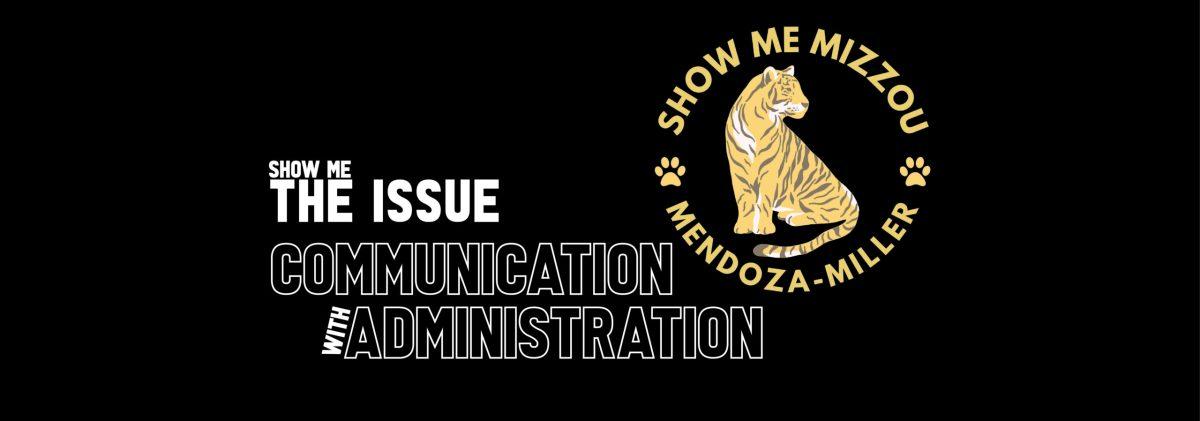“Show Me Mizzou,” one of the two slates running for Missouri Students Association president and vice president positions this month, recognizes that improving communication is a two-way street, and is ready to work with students and administration to help create more effective and widespread methods of communication.
- What processes will you implement to improve student-administration communication and relations?
MM: “I think that social media is the biggest thing right now [MU administration] can work on utilizing. I think there’s a lot of stress about the university sending these really formal emails … it really closes down communication.”
- If need be, how will you hold administration accountable if it fails to properly communicate with students?
MM: “There’s a lot of different approaches … I do not believe in the petty or immature aspect of pulling stunts on administration. I don’t think that’s really going to get us anywhere. And I think that’s a lot of how MSA has held administration accountable in the past.
The university cannot tell us what to do. They cannot fire us. But there’s also those relationships that are being built with administrators, and there is a level of trust and there’s a level of confidentiality on serious issues. We need to be able to have private conversations and have that respectful relationship where administrators know that they can trust us.
We are getting paid by the students to do this job, and so we need to be professional at all times. That doesn’t mean that we can’t strongly voice our concerns or get upset at times, but we also need to make sure that we are not doing things that are unprofessional in nature.”
- How do you plan to gauge the student body’s satisfaction with the administration’s communication throughout your term if your slate is elected?
JM: “Biweekly meetings with admin, some doughnuts and coffee — this very informal setting, I think, is an enormously impactful way to gauge interest in this process of establishing student-to-admin relations.”
MM: “We can provide space and we can advocate for students … and they can ask questions or voice concerns or say stuff that they like that the administration is doing. We just have to make sure that it’s being said in a productive way and that we’re being respectful both ways. [We’re] really trying to create an environment where that can happen.”
- What will achieving that better communication between student administration require from the both of you on a day-to-day basis?
JM: “Molly and I are both at each other’s disposal and … support this type of communication that we’re ultimately fostering as student leaders.”
MM: “We have become friends … I’m very grateful for that. We want to be friends and we want to be respectful … so finding a really unique balance and trying to learn from the mistakes of others … can be [beneficial] for us.”
Analysis:
Mendoza and Miller, above all else, focus on maintaining a professional relationship with everyone they encounter. That extends to students and administration. Their commitment to remain the voice of reason when it comes to conflicts between administration and students is one that not only is tangible but will improve the productivity of student-administration communication.
Mendoza and Miller also point out that the university is suffering from a staffing shortage in multiple offices. The slate’s joint experience in the MSA Senate has attuned them to what happens behind the scenes, and with that came an understanding of just how much the staff deals with on a day-to-day basis. Their promise to work with administration to help shoulder some of that burden is smart — it puts the responsibility on them, not on anyone else — making that goal of how administration communicates with students more concrete and realistic.
Use this link to submit questions for the candidates to answer at the debate: https://forms.gle/ot2inTXzRbb2aBFMA
Edited by Emmet Jamieson | [email protected]








